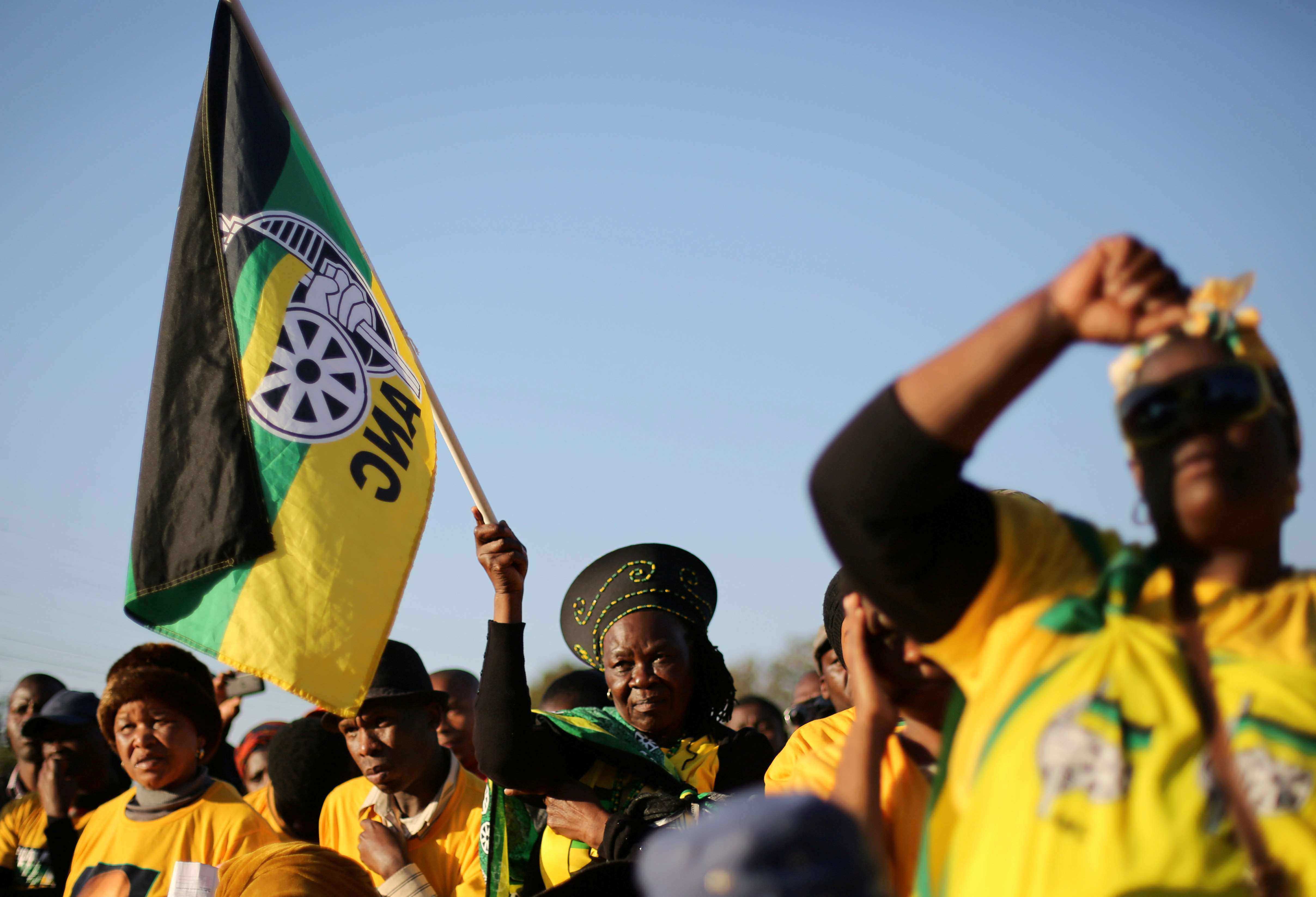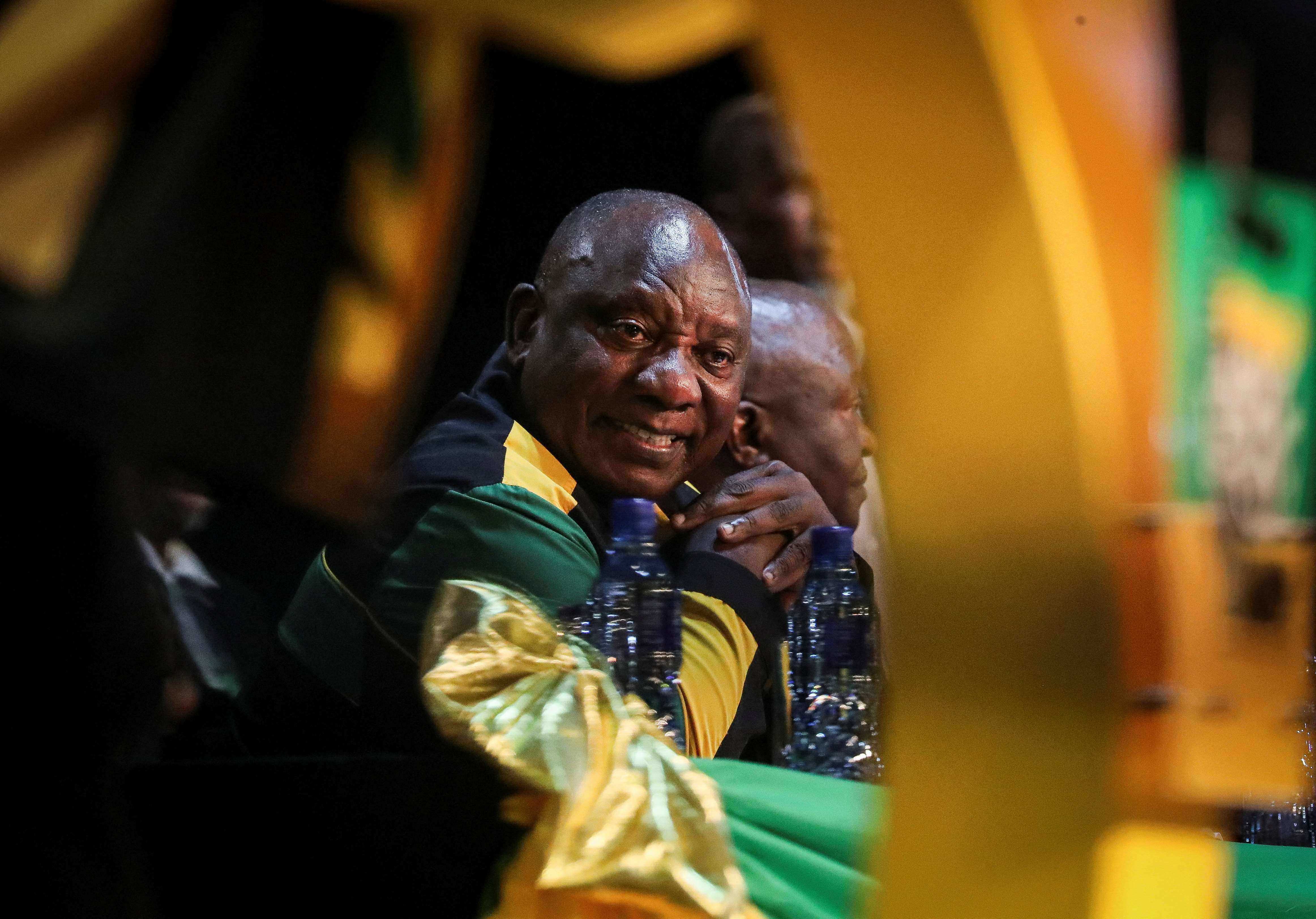ANC faces polls with tough growth figures
Economy in bad shape
Load shedding and Transnet's ports and freight-rail troubles marred most of 2023, while inflation, high interest rates and volatile oil price also made it difficult for SA to grow.
Renée Bonorchis - The governing ANC will only be able to demonstrate 0.6% annual growth in gross domestic product (GDP) for 2023 when it goes to the polls in May.
Barring the pandemic and the global financial crisis of 2009, that’s the third-worst figure since apartheid ended 30 years ago.
Agriculture, forestry and fishing; trade, catering and accommodation; electricity, gas and water; and mining and quarrying recorded negative growth in 2023, according to Statistics SA.
It was finance, real estate and business services; transport, storage and communication; personal services; and manufacturing that expanded.
This helped to ensure the 2023 figure didn’t dip further and that the fourth quarter, which showed GDP growth of just 0.1%, didn’t push the economy into a technical recession, defined as two consecutive quarters of negative growth.
Although SA escaped a technical recession, when it’s by just a few decimals "you know the economy is in trouble", said Gina Schoeman, managing director, SA economist, and head of research at Citi, in response to questions after GDP figures were released last week.
Home-made problems
Load shedding and Transnet’s ports and freight-rail troubles marred most of 2023, while inflation, high interest rates and volatile oil prices, especially since the conflict between Israel and Gaza began, also made it difficult for SA to grow.
For beleaguered companies and citizens, there’s no immediate easing on the horizon, with unemployment having risen and consumer inflation having already shown a discomforting increase in January.
"Despite the improvement in load shedding over the fourth quarter, the underlying energy problem remains unresolved," Nedbank said.
It added: “We expect more subdued power outages throughout the year due to increased planned maintenance and further progress on the Renewable Independent Power Producer Programme, given plans to expand the grid. Operational failures on the part of Transnet will continue to be an impediment to sectoral growth over the year.
“Although plans are in place and backlogs at the ports have been reduced, it will take until at least 2025 to start seeing meaningful improvements.”
Economists have said interest rates, which remain at 14-year highs, should begin to come down in the second half.
Even so, supply-side constraints will continue to undermine growth in the first half, with the peak impact of tighter monetary policy also likely to still weigh on consumer pockets, Jee-A van der Linde, a senior economist at Oxford Economics, said.
Attraction waning
That makes for a plethora of numbers and measurements that may make the ANC look unattractive to some voters in May.
The budget presented in February, which caused the rand to weaken and bond yields to widen, and the ANC’s election manifesto, which promoted an unaffordable health scheme and the requisitioning of people’s savings, have also worried global ratings agencies.
Fitch’s concern over the budget was warranted, particularly given the expenditure pressures of the election manifesto promises of various political parties, including the EFF, Investec chief economist Annabel Bishop said.
According to Bishop: “Political uncertainty has weakened the rand, as financial markets are very concerned over the election outcome.”
Foreign appetite for SA debt has already dried up considerably since the end of the 2000s, as SA’s borrowings escalated sharply, and its creditworthiness declined, Bishop noted.
A post-election ANC-EFF coalition would see even further negative foreign investor sentiment, she added, saying that such a scenario could bankrupt SA and lead to debt defaults.
Not rosy
Even if the worst-case scenario doesn’t come to pass after the national election, SA’s economy has little hope of showing any meaningful growth this year.
"Years of chronic underinvestment lies at the heart of South Africa's growth problem," Van der Linde said.
"We maintain our view that South Africa entered 2024 with hardly any economic momentum and real GDP growth is expected to pick up only modestly to reach 0.7% this year, versus the consensus forecast of 1.2%."
He added: “The overall picture hasn’t changed: the economy remains stagnant amid soft domestic demand and numerous supply-side growth impediments. It is evident that the SA economy is lurching from quarter to quarter, unable to produce sufficient job growth and expand the supply of goods and services.”
Oxford Economics' forecast for GDP in 2024 is on the lower end.
Christie Viljoen, economist and senior manager at PwC in SA, said they’re estimating economic growth of around 1% in 2024, with key assumptions including a decline in load shedding from 2023, some improvement in railway and port performance, as well as the start of interest rate cuts around the middle of the year.
Nedbank also called 1% for 2024, as did Citi, with Schoeman saying there will be some growth as energy supply is enabled via renewables and disinflation helps consumer incomes. But the upcoming election is a risk, she added.
The outliers to the upside include the SA Reserve Bank’s GDP growth forecast for 2024 and 2025, which was unchanged in January at 1.2% and 1.3%, respectively.
National Treasury, with the finance minister presenting his last budget before elections, went even further and expected 1.3% in 2024 and 1.6% in 2025. – Fin24
Barring the pandemic and the global financial crisis of 2009, that’s the third-worst figure since apartheid ended 30 years ago.
Agriculture, forestry and fishing; trade, catering and accommodation; electricity, gas and water; and mining and quarrying recorded negative growth in 2023, according to Statistics SA.
It was finance, real estate and business services; transport, storage and communication; personal services; and manufacturing that expanded.
This helped to ensure the 2023 figure didn’t dip further and that the fourth quarter, which showed GDP growth of just 0.1%, didn’t push the economy into a technical recession, defined as two consecutive quarters of negative growth.
Although SA escaped a technical recession, when it’s by just a few decimals "you know the economy is in trouble", said Gina Schoeman, managing director, SA economist, and head of research at Citi, in response to questions after GDP figures were released last week.
Home-made problems
Load shedding and Transnet’s ports and freight-rail troubles marred most of 2023, while inflation, high interest rates and volatile oil prices, especially since the conflict between Israel and Gaza began, also made it difficult for SA to grow.
For beleaguered companies and citizens, there’s no immediate easing on the horizon, with unemployment having risen and consumer inflation having already shown a discomforting increase in January.
"Despite the improvement in load shedding over the fourth quarter, the underlying energy problem remains unresolved," Nedbank said.
It added: “We expect more subdued power outages throughout the year due to increased planned maintenance and further progress on the Renewable Independent Power Producer Programme, given plans to expand the grid. Operational failures on the part of Transnet will continue to be an impediment to sectoral growth over the year.
“Although plans are in place and backlogs at the ports have been reduced, it will take until at least 2025 to start seeing meaningful improvements.”
Economists have said interest rates, which remain at 14-year highs, should begin to come down in the second half.
Even so, supply-side constraints will continue to undermine growth in the first half, with the peak impact of tighter monetary policy also likely to still weigh on consumer pockets, Jee-A van der Linde, a senior economist at Oxford Economics, said.
Attraction waning
That makes for a plethora of numbers and measurements that may make the ANC look unattractive to some voters in May.
The budget presented in February, which caused the rand to weaken and bond yields to widen, and the ANC’s election manifesto, which promoted an unaffordable health scheme and the requisitioning of people’s savings, have also worried global ratings agencies.
Fitch’s concern over the budget was warranted, particularly given the expenditure pressures of the election manifesto promises of various political parties, including the EFF, Investec chief economist Annabel Bishop said.
According to Bishop: “Political uncertainty has weakened the rand, as financial markets are very concerned over the election outcome.”
Foreign appetite for SA debt has already dried up considerably since the end of the 2000s, as SA’s borrowings escalated sharply, and its creditworthiness declined, Bishop noted.
A post-election ANC-EFF coalition would see even further negative foreign investor sentiment, she added, saying that such a scenario could bankrupt SA and lead to debt defaults.
Not rosy
Even if the worst-case scenario doesn’t come to pass after the national election, SA’s economy has little hope of showing any meaningful growth this year.
"Years of chronic underinvestment lies at the heart of South Africa's growth problem," Van der Linde said.
"We maintain our view that South Africa entered 2024 with hardly any economic momentum and real GDP growth is expected to pick up only modestly to reach 0.7% this year, versus the consensus forecast of 1.2%."
He added: “The overall picture hasn’t changed: the economy remains stagnant amid soft domestic demand and numerous supply-side growth impediments. It is evident that the SA economy is lurching from quarter to quarter, unable to produce sufficient job growth and expand the supply of goods and services.”
Oxford Economics' forecast for GDP in 2024 is on the lower end.
Christie Viljoen, economist and senior manager at PwC in SA, said they’re estimating economic growth of around 1% in 2024, with key assumptions including a decline in load shedding from 2023, some improvement in railway and port performance, as well as the start of interest rate cuts around the middle of the year.
Nedbank also called 1% for 2024, as did Citi, with Schoeman saying there will be some growth as energy supply is enabled via renewables and disinflation helps consumer incomes. But the upcoming election is a risk, she added.
The outliers to the upside include the SA Reserve Bank’s GDP growth forecast for 2024 and 2025, which was unchanged in January at 1.2% and 1.3%, respectively.
National Treasury, with the finance minister presenting his last budget before elections, went even further and expected 1.3% in 2024 and 1.6% in 2025. – Fin24






Kommentar
Allgemeine Zeitung
Zu diesem Artikel wurden keine Kommentare hinterlassen